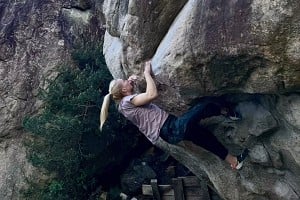
The sports-bar company Clif Bar has dropped five of its 20 sponsored climbers. Missing from its roster are Alex Honnold, Dean Potter, Steph Davis, Cedar Wright and Timmy O’Neill. According to a source who requested anonymity, he received a call and was told that “Clif Bar was firing most every climber they sponsor who was featured in Valley Uprising. Their explanation, ‘Clif Bar is terminating support to anybody who freesolo climbs, BASE jumps or slacklines.’”
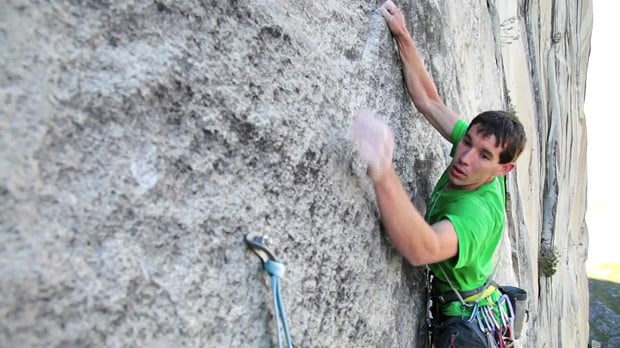
Valley Uprising, sponsored by Clif Bar, is the new film out by Sender Films, and documents the evolution of Yosemite rock climbing, up to and including bold solos by Honnold and Potter. The gritty film portrays climbers as rebels, fringe dwellers even, who sometimes skirt regulations and engage in illegal activities including BASE jumping. Sponsors seeking Wheaties’ box athletes to represent them would need to look elsewhere.
"In 2013, Clif Bar reported sales of $508 million, according to the San Francisco Business Journal..."
Clif Bar wouldn’t confirm that it had cut its sponsored climbers, but the Clif Bar website now posts an error message for any page that previously promoted the five climbers.
“Every year we evaluate all of our climbing sponsorships on a case-by-case basis,” said a Clif Bar spokesperson. “After evaluating a variety of sponsorships at all levels of climbing, we’ve made the decision to get back to Clif’s roots and focus on the more traditional aspects of the sport, like trad, bouldering, alpinism and sport climbing to name a few. Our climbing athlete sponsorships will reflect this traditional focus.”
Climbers might argue that soloing, the purest form of climbing and practiced since the sport was invented in the late 1800s, is at the core of traditional climbing, while sport climbing, which wasn’t conceived until well over 100 years later, is relatively new. It is also notable that Cedar Wright is in climbing circles not known so much for soloing as he is for freeing El Cap in a day, big-wall speed climbs and for hard roped, traditional lines. Similarly, O’Neill is best recognized as a colorful commentator, speed climber and executive director of Paradox Sports, the non-profit dedicated to improving the lives of the physically disabled. O’Neill has climbed El Cap with his brother, a T-12 paraplegic.
Honnold, Potter and Davis are, of course, top-shelf free soloists who also accomplished trad climbers and alpinists, and among the daredevil elite who climb and BASE jump or wingsuit off of formations—Potter invented FREE BASE, free soloing with a parachute, a feat he has pulled off on the Eiger north face and Rostrum roof in Yosemite.
Honnold is perhaps the most widely recognized rock climber in the world. "He 's bigger than climbing," said Peter Mortimer, Sender Films president, in a Grayson Schaffer interview with Outside. "He's doing things that won 't get done again for a generation, if ever. If you put all of our business into two boxes, and one was Alex Honnold and the other was everything else, Alex is the biggest box."
Cutting Honnold may be the equivalent of Nike losing LeBron James, but it also indicates that extreme sports might be too wild for some companies, especially ones that appeal to the more wholesome side of the population, and this could have a ripple effect.
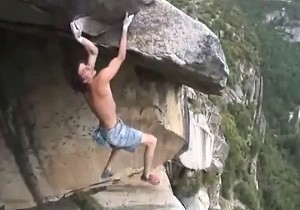
In 2013, Clif Bar reported sales of $508 million, according to the San Francisco Business Journal. Since its launch in 1992, Clif Bar has carved out a market in part by attaching itself to the sport of climbing. Clif Bar packaging is recognizable for depicting a climber (roped), and then there’s the name itself, although that is short for Clifford, as in Clifford Erickson, company owner Gary Erickson’s father.
Clif Bar isn’t alone on riding the wave of climbing’s popularity—companies from Gillette to Citibank have used climbers to hock their wares, often paying them hefty sums. This summer, Clif Bar was a title sponsor of the Psicobloc Masters, a soloing contest held in Park City, and over the years the company has supported climbing films and climbers including Potter and Honnold.
Sponsors can and do fire professional athletes, usually for misconduct, and many contracts include a “morals” clause that lets the sponsor drop the athlete for behaving improperly. Famously, Lance Armstrong and Tiger Woods lost lucrative sponsorships for doping, lying or engaging in immoral conduct.
But having a sponsor drop its athletes because it decided that the sport they excel in is too risky or presents too frightening an image could be a first.
- This News Item first appeared on the Rock and Ice Website


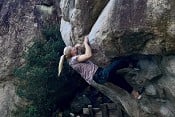






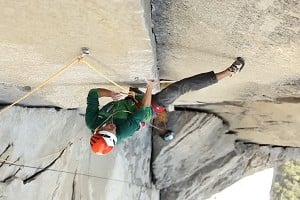
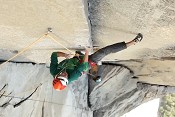


Comments